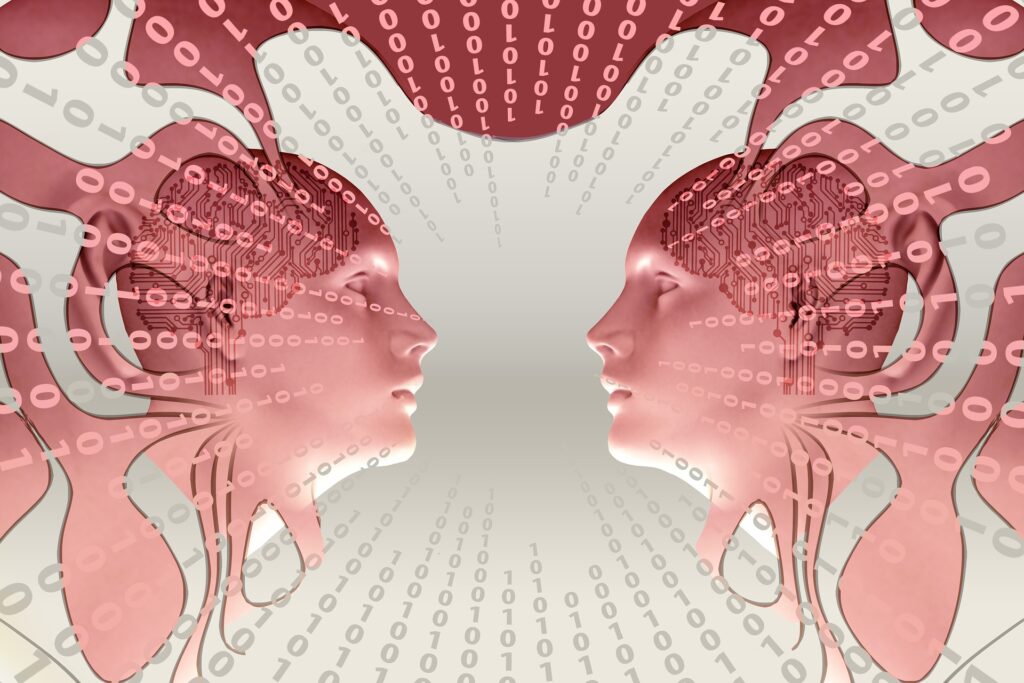People have always asked a question: Who am I? In less and more conscious ways we define our identities by identifying ourselves with some groups, characters and qualities. In addition our identities are formed by our values and ideals. Our role models becomes represented in ourselves, as ideas pointing the direction in life.

We define ourselves in the social context where we live. Who am I in relation to other people? What are my roles in social groups and communities? Digitalisation has radically changed the concept of social context. It is no more defined by the people that we meet in our physical environment or people with whom we have direct contact with. Our social context is also formed by social profiles, and we may be influenced by persons that we have never even met. Who might not even be real persons. They could be identities created by a group of people with different agendas. It’s nothing new that our need to identify ourselves with characters that we value and characters that are valued in our social context are exploited for different purposes, such as marketing different products. Who wouldn’t by a product that promise you as a person to become more beautiful, attractive, healthy and happy? However, we are not only passive consumers in digital arenas. We are actively creating digital world, living inside it. Digital world being an inseparable part of our experience of reality including ourselves.
I’m pregnant and waiting for my first child and that has evoked a lot of pondering about differences between generations. One of the biggest changes in my life as compared to my parents and grandparents has been digitalisation. Much has happened only during my life. I feel that even me and my 13 years younger sister are living in a partly different worlds. She has grown into the digital world whereas I still feel like I would be observing it outside – perhaps that being just an illusion.
When I try to think, what kind of world is my child facing, I feel like I would be investigating some new, weird planet. How is this digital age from kids perspective? What all is different for the kids nowadays as compared to my own childhood? Not to even try to predict what will happen during the next ten or twenty years when my child is growing up. For many reasons, I feel that I am in the beginning of the new and exciting journey where I will guide my child and she will guide me. But what comes to digital arenas and technological developments, I am well aware that at some point she will teach me more than I will teach for her. And it will be a challenge for me to be able understand possibilities and challenges that children face during this and coming digital age.
Digitalisation has changed the role of the parents, teachers and other close adults as role models for children and adolescent. At least in my stories of the old days, parents, teachers and other older people were perceived as a source of knowledge and information. They could tell stories about historical events and teach practical skills necessary for surviving. In a good and a bad, there were fewer role models for children, fewer ‘influencers’. Nowadays, internet provides totally different opportunities to find information and knowledge but also ingredients for formation of an identity.
At the same time there exist a growing demand for building your identity in digital arenas. We need to be presented in different professional and personal medias. For most young people this is a natural part of their identity – building a profile to define who am I. In Finland, there has been a clear decreasing trend in an alcohol consumption within young people. One explanation, that I heard for this, was that young people are worried to post something stupid in social media, if they would be drunk. Thus, the costs of being out of control could be too high. This thought stopped me. I am pleased of the decreasing trend in an alcohol consumption, but at the same time I felt sad about the idea that people are so worried about an image that they give for other people about themselves. A worry of being judged by other people because of one post. Who are those people anyway? Friends, family members, just some idea of ‘other people’?
Who are other people nowadays in relation to whom we answer the question “Who am I?”?
This makes me wonder, who are other people nowadays in relation to whom we answer the question “Who am I?”? And what are the skills that we, and especially children and adolescent, need for having a good and healthy relationship with themselves and others in this digital age?